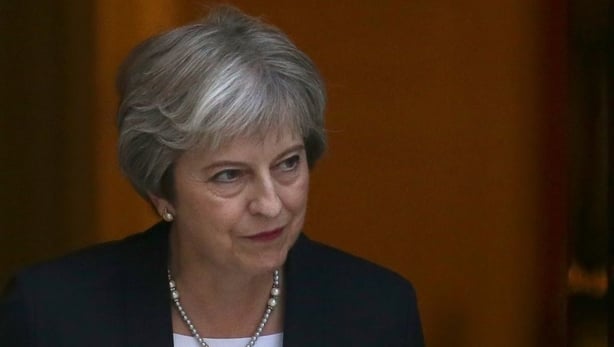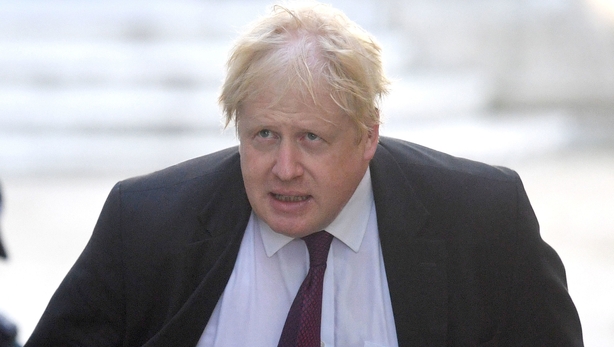As Conservative Party members gather for their annual conference, the party’s official phone app appears to have a major security flaw that allows people to access the private data of attendees, including Cabinet ministers.
The CPC 2018 app allowed anyone to log in as a politician, delegate or journalist attending the Birmingham event simply using their email address.
Once logged in as that person, they were able to access information including their mobile phone numbers.
Images posted to Twitter this afternoon showed people logging in as Boris Johnson and Michael Gove among others and apparently leaving messages on its internal messaging system.
Guardian Columnist Dawn Foster, who was one of the first to spot the flaw, wrote: "The Tory conference app allows you to log in as other people and view their contact details just with their email address, no emailed security links, and post comments as them.
"They've essentially made every journalist, politician and attendee's mobile number public. Fantastic."
The app, created by an Australian firm called Crown Comms, was updated and the login function removed after concerns were raised with the party.
Jon Trickett, shadow cabinet office minister, said: "How can we trust this Tory Government with our country's security when they can't even build a conference app that keeps the data of their members, MPs and others attending safe and secure?
"The Conservative Party should roll out some basic computer security training to get their house in order."

The flaw comes as party members begun gathering for their annual conference, bitterly divided over British Prime Minister Theresa May’s plans to leave the European Union which threatens to derail any deal and put her own job in doubt.
Just six months before Britain is due to leave the EU on 29 March 29 2019, Mrs May has said talks to clinch a divorce deal are at a stalemate.
She has said her "Chequers" proposals are the only viable option, but EU leaders have said parts of them are unacceptable and many Conservatives have threatened to vote down a deal based on Mrs May's blueprint.
The uncertainty has led to business concerns that there will be no deal, potentially leading to tariffs and border delays.
Read more
- Boris Johnson refuses to rule out possible leadership bid
- Johnson attacks May's Brexit strategy in newspaper article
Japanese carmaker Toyota has warned that leaving without an agreement would hit its production and jobs would ultimately be at risk.
"Of course we want a deal," UK Business Secretary Greg Clark told BBC radio, saying Mrs May and her negotiating team were determined to secure a deal and there were grounds for optimism.
"That's why the next few weeks are going to be important to go through issue by issue what's being proposed to address whether there are any residual concerns that the negotiators have and with a cool head and recognising the common interest in this, resolve them one by one."
A summit of EU leaders last week ended in a blunt dismissal of Mrs May's proposals, which they said would fail to resolve arguments over the land border of Northern Ireland, in the UK, with the Irish Republic, in the EU, one of the main sticking points to a deal.
In an interview with the Sun newspaper, Britain's Brexit Secretary Dominic Raab said the Irish issue was being used by some in the EU Commission "for political purposes", but said he was open to suggestions from the bloc.
"I think they want a deal," he said. "We are not pretending there are not alternative proposals that we would look at. But we need credible responses for the proposals we have set out or credible alternatives, and we have not seen them yet."
As Conservative politicians and party members began arriving in Birmingham for what is expected to be a fractious party conference which starts on Sunday, many have said the Chequers plans are dead and should be torn up.

Leading Brexit hardliner and former foreign secretary Boris Johnson, who quit over the issue, called on Friday for a free trade agreement with the bloc, saying the current proposals would leave Britain in "enforced vassalage" to the EU.
Mr Johnson, the bookmakers' favourite to succeed Mrs May, declined to answer directly whether he would rule out a leadership challenge.
While Mrs May and government ministers continue to express confidence that a final Brexit deal can be agreed, they have also insisted no-deal would be better than a bad deal.
Toyota became the latest high-profile business to warn that leaving the world's biggest trading bloc without any trading agreement could add costs and cripple output at plants which rely on the just-in-time delivery of tens of thousands of components.
"If we crash out of the EU at the end of March the supply chain will be impacted and we will see production stops in our factory," said Marvin Cooke, managing director of Toyota's Burnaston plant, which produced 144,000 vehicles last year.
Earlier this week other carmakers in Britain including BMW, McLaren and Honda said they had triggered some contingency plans, such as certifying models in the EU, redrawing production schedules and stockpiling parts.

